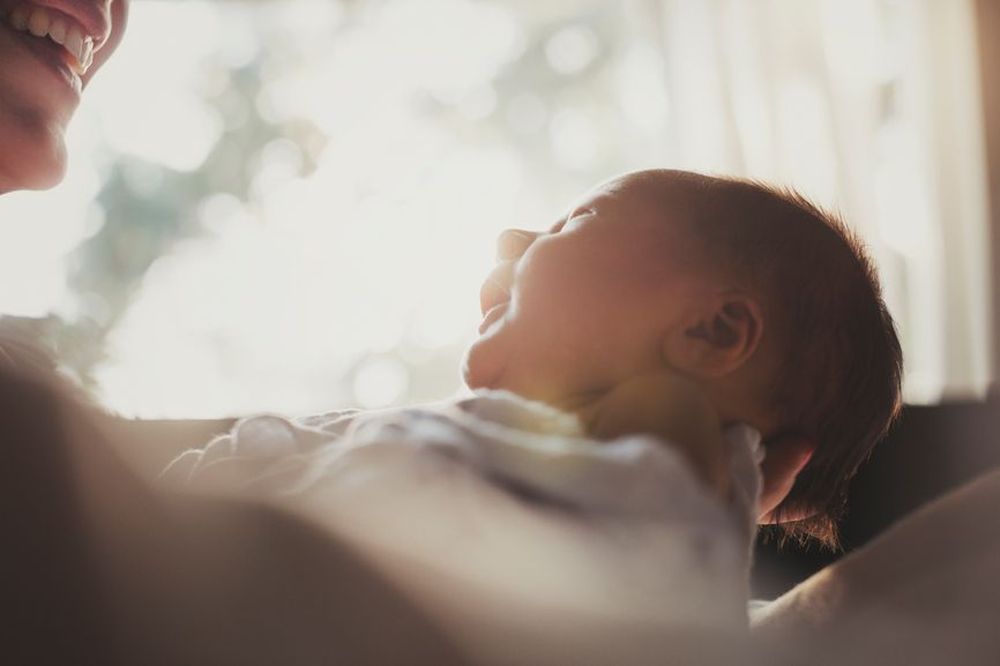What does the '3 day stay' policy mean for new mums?
Published on Wednesday, 03 July 2019
Last updated on Tuesday, 31 December 2019

Giving birth is a monumental moment in a woman's life, bringing joy and relief. Although the rigours of labour are over, the challenges of motherhood have just begun.
In the first days, a new mum might feel exhausted, unsure, overwhelmed, or simply a bit flat as she cares for a brand-new person. Birth takes a physical toll, and many women are dealing with sleepless nights, breastfeeding challenges and emotional upheaval as they bond with their baby.
The Government recognises the need to support new mums, and women are currently entitled to 48 hours of funded postnatal care provided by their local District Health Board (DHB). Now, National has gone one step further with its '3 day stay' postnatal policy, so let's see what this could potentially mean for new mums.
What does this new postnatal care policy involve?
In short, National has proposed to increase the level of support given to new mums and give them a say in where they receive their postnatal care.
To do this, National has released a Member's Bill which promises to give all new mums a minimum of 72 hours of funded postnatal care after they give birth. This would be available after each child's birth, and in a departure from the current system, mums would be able to choose where they received the care, instead of their local DHB making this decision for them.
Women would also have the freedom to decide how much care they needed, meaning some mums could get more or less than the three days. This is because National says the policy would be, 'Ring-fenced, meaning if one mother only requires one day in care, her additional two days would be used for another mum who might need a five day stay.'
What is the thinking behind the '3 day stay' policy?
National is recognising the importance and challenges of those first few days after birth, and wants to give new mothers choice, increased support, and time to bond.
The Member in charge of the Bill, Louise Upston says, 'At the moment, new mothers have 48 hours of care funded by DHBs, but we know that they're often encouraged to leave as soon as possible. This sort of pressure can cause additional stress in what is already a stressful time.'
She adds that, 'During the first few days after birth we know mothers can experience the baby blues, have difficulty breastfeeding, can be exhausted and sometimes just need a bit of extra help while they build up confidence … We believe mums should have a choice in the kind of care that they opt for, whether that's in a hospital or at a community or private facility. We would make community care available to all women, no matter where they choose to give birth.'
What do postnatal care experts think about the '3 day stay' idea?
Mothers Matter is an advocacy group for postnatal care and they agree with the thinking behind the Members Bill.
Spokesperson, Dame Lesley Max likens birth to, 'Running an ultramarathon' and says that while the hours after delivery are an exciting time for many women, they're also a time of, 'Extreme vulnerability and apprehension'. While she appreciates that some women wish to go home soon after giving birth, Dame Max says, 'A new mother should never feel as though she has to go home before she is ready.'
She also sees postnatal care as benefitting New Zealanders in both the hours and years after birth. Dame Max explains that, 'The postnatal care a mother receives, provides her time and space to recover and, if she needs it, a helping hand to form the right loving bond and attachment with her new baby – setting them both on a positive lifetime trajectory.'
This is because, as well as providing support for new mums, postnatal care lays the groundwork for children to be happy and secure in their lives.
Dame Max says, 'Both international and NZ based studies show the importance of early bonding on the long-term mental health and resilience of children' and by accessing three days of supportive care, mothers and babies can begin their bonding and attachment 'journey' with the help of health care professionals.
The first hours a mum shares with her baby might be tiring and emotional, but they're also very special, and if women can get more postnatal support at a place of their choosing, then that's good news for the health and wellbeing of mums, newborns, and the children they'll grow into.
We'll keep you updated if and when changes to the policy are made.
Related Articles

Ways for working mums to find a better balance
The challenges mums face when balancing child care with the working week.

A new way to balance the child care workload between parents?
The growing popularity of the baby-nup is shifting the focus from marriage to children, and this parental agreement promises fairness and transparency around child care and chores.

Alleviating parental concerns around child care
According to a national parenting survey, parents in Auckland are more likely to feel 'extreme concern' about putting their children in day care, than parents in any other city.
